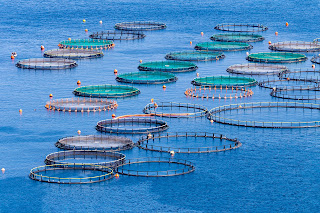Tucked away on page 1748 of the "James M. Inhofe National Defense Authorization Act for Fiscal Year 2023" were changes to the Jones Act—the most dramatic changes since 2008.
The changes introduce something the Jones Act has never had before: expressly excluded operations.
The predominant changes are as follows:
New Definition:
The law introduces the term "aquaculture worker."
Exclusion from Seaman Category:
Aquaculture workers are excluded from being classified as "seamen" under subsection (a) if two conditions are met: (A) State workers' compensation is available to the individual, and (B) The individual was engaged in aquaculture activities at the time of injury in a place where they had lawful access.
Looking at the reason these changes were made, the most vocal proponent of the changes we see is the East Coast Shellfish Growers Association (ECSGA). They point to the expense of Jones Act coverage and the non-standardized application of the perceived need.
Jones Act crew benefits cost the insured more than workers' compensation, with average Jones Act claims several times more expensive than the average similar State Act Claim. With the goals in mind, the changes will likely fit the bill.
However, the problems arise from the unintended consequences of these changes. The first is that the Jones Act defines aquaculture instead of relying on the Longshore Act's exact definition from the Code of Federal Regulations. The duplication rather than re-use means any case law in one is not immediately applicable to the other. Any changes to the code of Federal Regulations will also not be directly applied to the Jones Act.
The second significant change is to the newly defined subsection (a) of section 30104 of the U.S. Code. The subsection now starts with the clause "In General.—". This clause introduces more ambiguity as to who is a Jones Act Seaman. We have a specific named carve-out for Aquaculture Workers, but no limiting clause that states that it is the only carved-out operation.
In 2009 the changes to the Longshore Act that changed the jurisdiction for the repair of recreational vessels led directly to more attention on what was and was not a recreational vessel. We expect to see similar tests as to what is and is not included in these new changes. Would processing of shellfish count as aquaculture? What does "controlled" mean in cultivation? Most of the well-known Longshore case law about aquaculture is focused on fish canning, so we will see some new cases to follow.
As always, please get in touch with us if you have any questions, such as how best to cover these employers now that the laws are changing.
- Author: Mark Greenway, President, LIG Marine Managers




